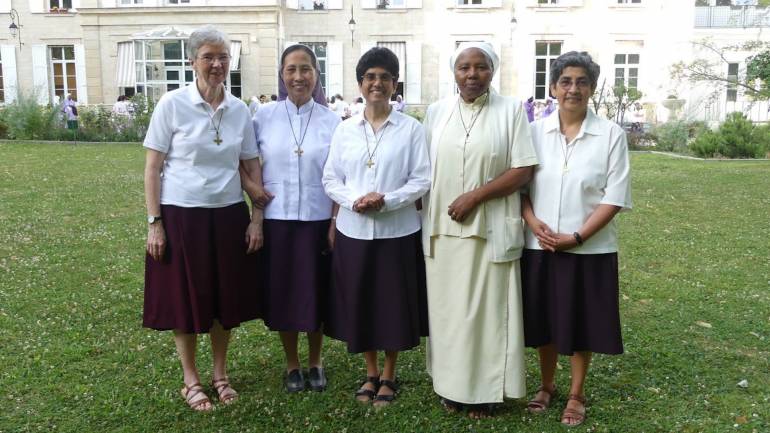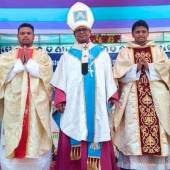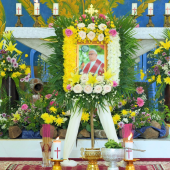Asian Nuns elected to leadership positions in Religious Assumption Congregation

Two Asian nuns have been elected to significant roles within the general counsel of the Paris-based congregation, Religious of the Assumption.
Indian Sister Rekha Chennattu has been reelected as superior general, while Filipina Sister Lerma Victoria Pangantihon has been elected as councillor for the Asia-Pacific Province. The elections took place during the congregation’s 30th general chapter in France.
In addition to the two Asian nuns, three other councilors were elected: Sr. Sandra Elizabeth Duran Perez for the Central America-Cuba Province, Sr. Marthe Ntuyumve for the Rwanda-Chad Province, and Sr. Françoise Martin for the Province of France.
“These sisters assume the mission of moving along new paths of synodality for our time that the chapter is exploring,” stated the congregation.
Sr. Chennattu, born in India in 1963, took her First Vows in 1984. After completing her theological studies, she specialized in Sacred Scripture and taught at the university level. The congregation expressed gratitude for her "great availability and joyful dedication in welcoming this new mandate that she sees as ‘being born anew.’"
Sr. Pangantihon, born in the Philippines in 1970, took her First Vows in 1999. She currently serves as the Provincial Superior of the Asia-Pacific Province.
The newly elected sisters will be responsible for implementing the new orientations of the chapter over the next six years.
The Religious of the Assumption was founded by Saint Marie Eugénie Milleret in 1839 in Paris and is present in 33 countries across four continents.
Their work includes Catholic education, the advancement of women, management of spiritual retreat houses, pastoral care of migrants, and collaboration with indigenous peoples.
In Asia, the congregation is active in Thailand, Vietnam, Japan, India, and the Philippines.
Radio Veritas Asia (RVA), a media platform of the Catholic Church, aims to share Christ. RVA started in 1969 as a continental Catholic radio station to serve Asian countries in their respective local language, thus earning the tag “the Voice of Asian Christianity.” Responding to the emerging context, RVA embraced media platforms to connect with the global Asian audience via its 21 language websites and various social media platforms.














